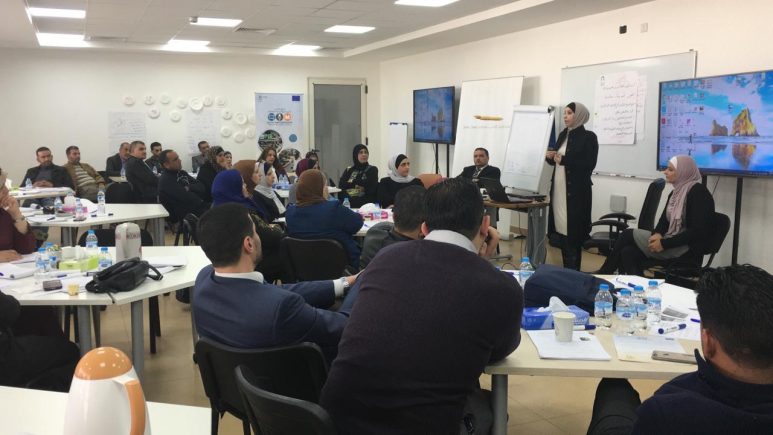22 February 2019
Country: MENA region
 Hate speech is a tricky topic anywhere. In the Middle East, it can be particularly polarizing.
Hate speech is a tricky topic anywhere. In the Middle East, it can be particularly polarizing.

“When we talk about hate speech during our trainings, we start with something that everyone can agree on—typically, Islamophobia in Europe,” says Media Information Literacy (MIL) trainer Dr. Naglaa Elemary. While many of the people that she trains are familiar with hate speech as a concept, Elemary says that most of them only see hate speech as coming from those who don’t think like them, and see themselves as being incapable of spreading hate speech—even though their views can be equally damaging.
“Next, we replace words like ‘Islam’ or ‘Muslim,’ with other words,” she continues. She says that after a while, the conversation turns to debating hate speech in a local context—in the case of Jordan, where she worked most recently, the most divisive topics were Syrian refugees, representations of women in the media and rising inflation.For Elemary—who quite literally wrote the book on MIL education in the Middle East—critically analyzing and tackling online hate speech is a key aspect of media and informally literacy education. Earlier this month, she joined Media Diversity Institute, Jordanian Media Institute and UNESCO Jordan in leading two workshops, first for future MIL trainers and then for teachers from the Irbid, Zarqa and Ma’an provinces of Jordan that have been selected to set up media and information literacy clubs in their schools. The project is is a part of broader UNESCO programme funded by the EC and has a full support from the Jordanian Ministry of Education. The programme will formally launch this spring. In recent interview the Minister of Education Dr. Walid Maani stated that MIL “empowers individuals of evaluating media content, and criticize it whether positively or negatively.”
“We are facing a lot of challenges now, particularly in how the new generation is using social media tools,” said Jordanian Media Institute Executive Director Dr. Basim Tweisi, explaining that 73 percent of students across Jordan access the Internet through mobile technology, where they are exposed to a range of different content—much of which is misleading, or even manipulative, as seen with the methods that radical groups, such as the Islamic State, used to recruit young people online.
“We see propaganda, hate speech and radicalisation happening through these tools,” he continues. “We need more awareness about messages that are seen and spread online.”
Another key issue is verification.
“I hate calling social media out, but the reality is that many people in the Middle East lost trust in the mainstream media after 2011,” Elemary said, elaborating on the impact of the Arab uprisings—and subsequent destabilization of countries like Syria and Yemen, and increasing repression in Egypt on both local and pan-Arab media.
While many people realised that most mainstream media was either a government mouthpiece, or was extremely polarizing, they trusted social media, which they saw as coming from real people, rather than from the government or other political actors.
“Many people are turning to social media to get their information, and verification became a huge, huge issue,” Elemary continued.
It is no secret that major social media platforms, like Facebook and Twitter are frequent conduits for misinformation. However, Elemary says that chatting platforms—specifically WhatsApp—is one of the more dangerous culprits, as it is primarily used for communicating privately with family and friends. As such, users trust the information that is shared, even when it could be false. For this reason, Elemary pushes her trainees to verify any and all content, no matter how it is received.
However, in the case of the Middle East, one of the largest challenges for MIL trainers is political instability and freedom of expressions, two factors which have made initiatives in countries like Syria and Yemen completely impossible, and completely derailed fledgling projects in once promising countries, like Egypt.
“In the Middle East, we need more political will,” Dr. Tweisi added, explaining that one of the reasons that Jordan has become a hub for media and information literacy initiatives in the region is its relatively stable political environment compared to its neighbours.
“We need freedom of expression and respect for human rights,” he continued. “Media and information literacy can be used to improve a lot of these situations, but we need political will from decision-makers in the field to advocate for these initiatives.”
